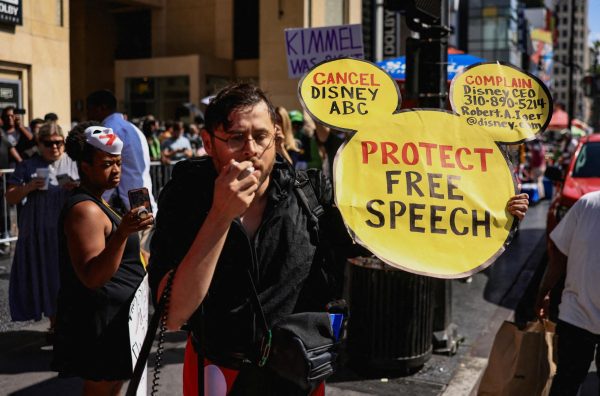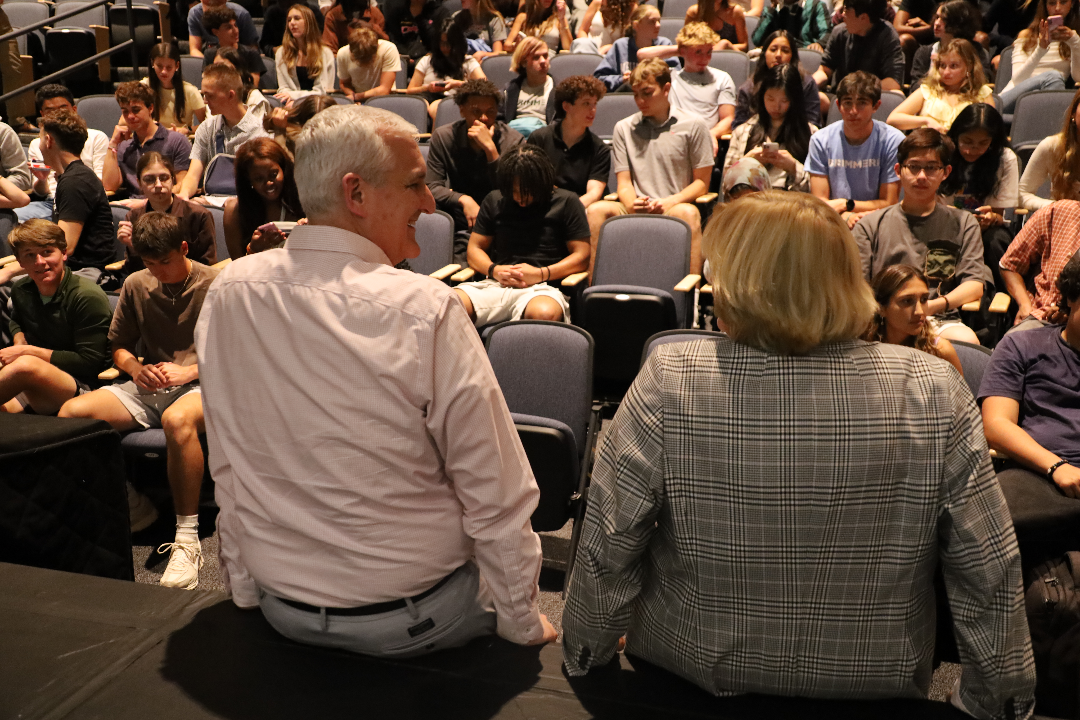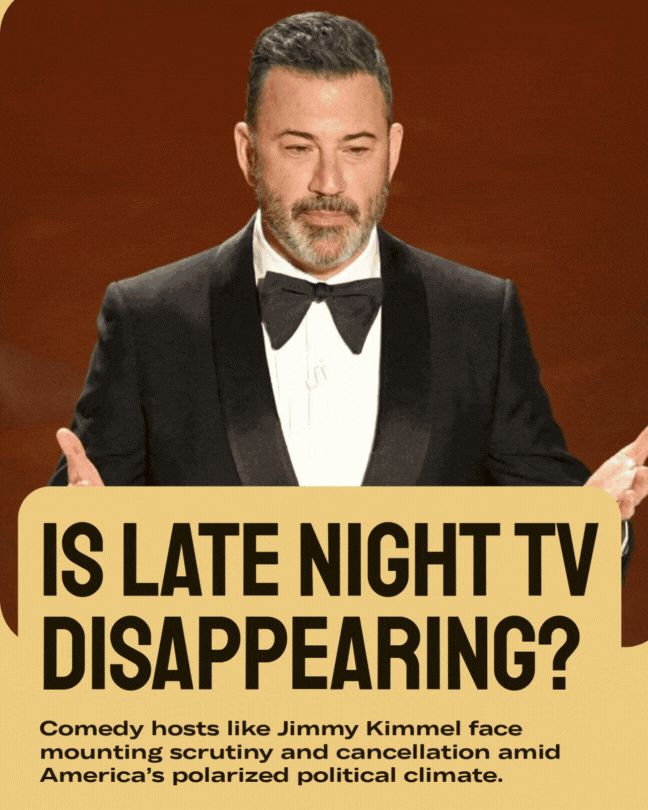On September 17, ABC suspended Jimmy Kimmel Live! “indefinitely,” citing the comedian’s monologue earlier that week about the assassination of Charlie Kirk. The suspension didn’t last—it ended after just six days—but the signal it sent is far more lasting.
Late-night comedy has always thrived on being messy, unfiltered, and political. That’s exactly why it matters—and why Kimmel’s brief removal revealed something dangerous: when regulators and corporations fuse politics with power, comedy is often the first casualty.
Kimmel’s return felt reassuring, but it underscored a warning—the strongest critiques are usually the first to be silenced.
The remarks under scrutiny were Kimmel’s claim that MAGA supporters exploited Kirk’s death for political gain, while also trying to distance themselves from the shooter.
As Kimmel said, “We hit some new lows over the weekend with the MAGA gang desperately trying to characterize this kid who murdered Charlie Kirk as anything other than one of them, and doing everything they can to score political points from it.”
Kimmel offered an emotional return, even as some ABC affiliates declined to air the episode. He warned that a government threat to silence a comedian the President dislikes is ‘anti-American.’ He also said, ‘It was never my intention to make light of the murder of a young man,’ though he stopped short of issuing an outright apology.
In response, Andrew Kolvet, a close associate of Kirk, demanded on Fox News a direct apology: ‘Where was the “I’m sorry”? All he had to do was say simply, “I am sorry, I won’t do it again, I will do better.”’”
Even if one firmly believes Kimmel should have uttered those words, the continuing outrage—stoked by affiliates, regulators, and politicians—illustrates how quickly accountability morphs into enforced conformity. Comedy has never promised accuracy, but rather perspective. To insist on perfection or silence is to fundamentally misunderstand the work of satire.
The drama, which came just over two months after the axing of The Late Show with Stephen Colbert, demonstrates a pattern of liberal talk shows facing uncertainty.
Importantly, the events have set off questions about free speech, media regulation, political polarization, and the influence of regulatory leverage over content.
Shortly after Kimmel’s monologue, conservative commentators on social media accused him of trying to shield the Democratic Party from association with the shooter, even though later reports suggested the shooter may have held left-leaning views.
The Federal Communications Commission Chair Brendan Carr also publicly criticized the remarks, threatening potential regulatory action such as fines or loss of license. In an interview with conservative YouTuber Benny Johnson, Carr described Kimmel’s comments about Kirk as “the sickest conduct possible.”
Carr explicitly urged ABC and its affiliates to “push back” against airing Jimmy Kimmel Live!, warning that the network risked “license revocation” over what he described as a pattern of news distortion.”
Immediately following the media frenzy, Nexstar Media, a large group of at least 28 ABC-affiliated stations, pulled Jimmy Kimmel Live! from its stations on the premise of his remarks.
Under the Trump administration, the FCC has become more vocal about regulatory pressures, including threats of licensing or other consequences for content that is deemed objectionable.
At the heart of Jimmy Kimmel Live! ‘s suspension lies a larger question of free speech set against misinformation: can a wrong or twisted fact from a comedian alone justify for an indefinite suspension?
It is concerning that the FCC is publicly pressuring the media to suspend liberal shows.
It appears that the suppression (or removal) of liberal-leaning voices like Jimmy Kimmel and Stephen Colbert are the result of ideological targeting from not only companies looking to appease the FCC in cases of mergers or the FCC chair institution his views—but also president Donald Trump, who publicly cheered the end of both shows and suggested that NBC talk show hosts Jimmy Fallon and Seth Meyers would be targeted “next“.
This highlights the necessity for the FCC to remain an independent and bipartisan federal body, working to ensure factual news while also promoting the continuation of talk shows and news from all ideologies and perspectives.
A bipartisan commission is only effective if it protects speech from retaliation, even when that speech is unpopular or inaccurate. It should always strive to create an environment where factual, honest media is encouraged, but also features an area to improve and carry-on when imperfections occur.
In a country that values free speech, it’s important that media and the FCC alike work to ensure a space for ideological discourse.

Supporters of the suspension argue that free speech does not exempt public figures from taking accountability. Networks are expected to operate in public interest. They contend that misleading or offensive remarks should reasonably warrant correction or discipline.
But an indefinite suspension with threat of license revocation reveals something more troubling–late-night comedy has historically served as a check on power, holding political leaders accountable through humor and critique. Undermining this tradition weakens an informal but influential watchdog of democracy.
Kimmel’s suspension also risks setting a precedent: if late-night hosts can be suspended for political speech, networks may increasingly give in to regulatory or corporate pressure.
Once political pressure dictates who stays on air, satire and dissent risk being silenced. In a democracy, controversial speech should spark debate, not removal.
That’s why Kimmel’s return matters, signaling that networks can push back, at least partially, against political and regulatory pressure.
But the episode leaves a warning: if corporations and regulators keep wielding their leverage this way, we could end up with a media environment where only the safest voices survive—and that would be a loss for everyone.






















































